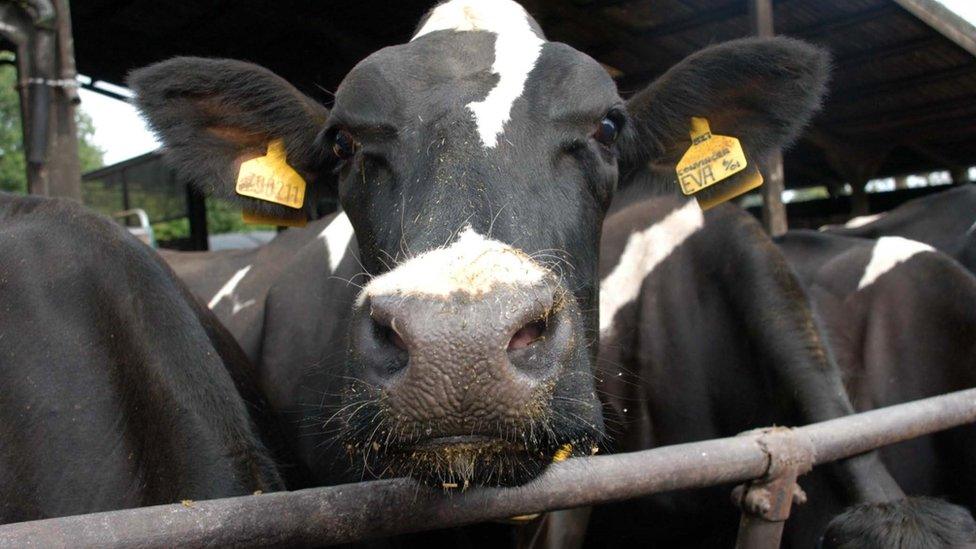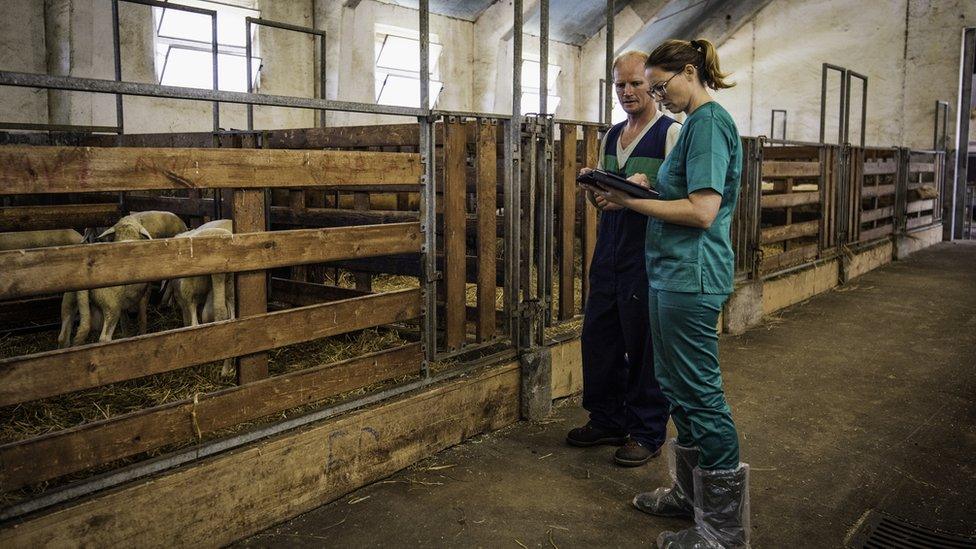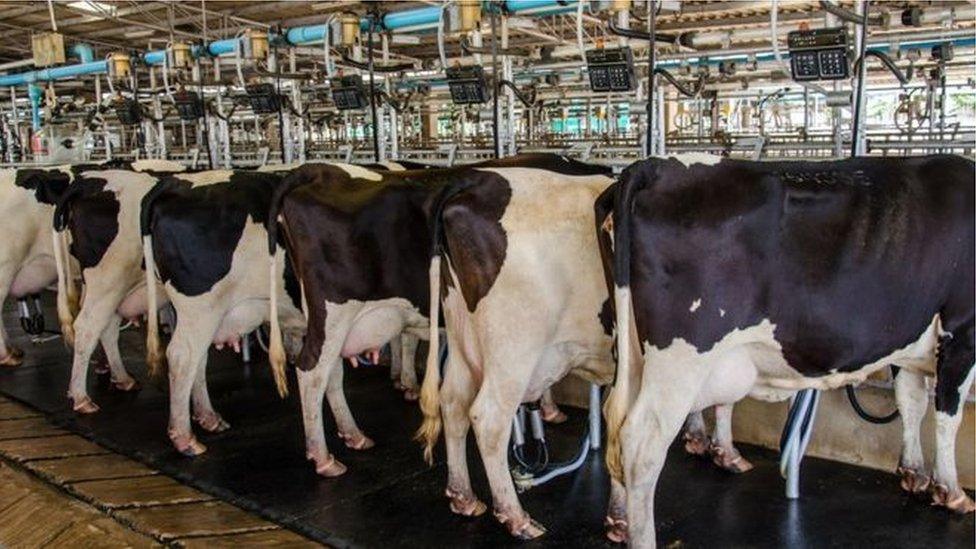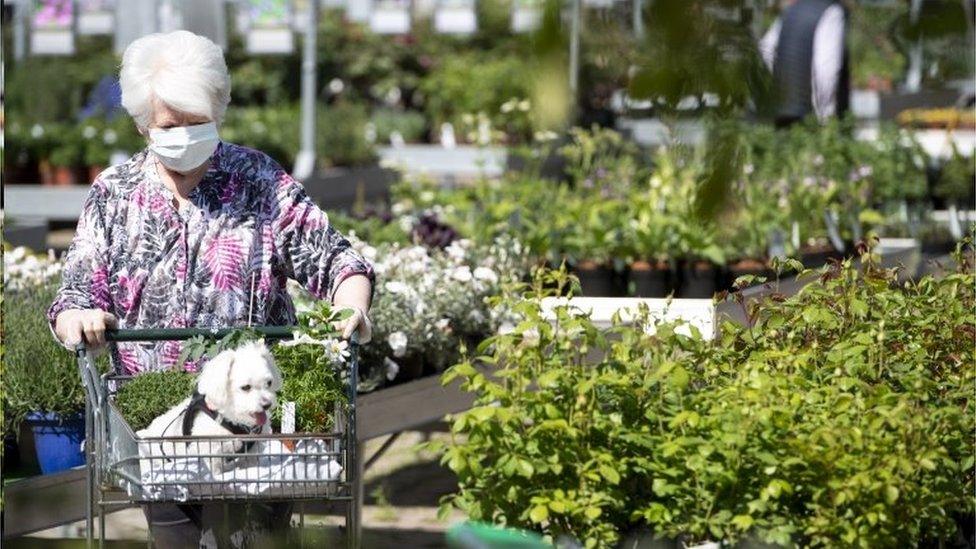Brexit: Vets to get £150 a time for export certificates
- Published

The government will pay vets up to £150 a time for export certificates which will be needed for food products going from GB-NI from January.
From 1 January, NI will stay in the EU single market for goods, but the rest of the UK will leave.
Food products arriving in NI from GB will be subject to new documentation and checks, but the changes won't be fully implemented until April.
An Export Health Certificate (EHC) is central to this process.
Live animals and products of animal origin - meat, milk, fish and eggs - normally need an EHC to enter the single market.
The EHC has to be signed by a vet or other qualified person in the exporting country after they have inspected the goods.
An EHC is needed for every different product line, for example there are different certificates for milk and yogurt rather than a generic dairy certificate.

Arla imports about 15% of its products, in line with others in the dairy sector
Supermarkets and other retailers had raised concerns that the cost of this would lead to big increases in prices and make some products unavailable.
The government has agreed to pay vets up to £150 a certificate or up to £500 for a special certificate needed for transporting horses.
Supermarkets and other firms will not need to pay, instead the vets will directly invoice the government.

"As we implement the Northern Ireland Protocol, these arrangements ensure there is unfettered access for traders and minimises the impact of these new requirements," said Farming, Fisheries and Food Minister Victoria Prentis.
"The Movement Assistance Scheme will help make it easier to move animals, plants and agri-food goods from Great Britain to Northern Ireland and will give practical help and support to businesses."
She added performance of the scheme will be review after three months to "determine how to best provide ongoing support to traders".
Related topics
- Published15 September 2019

- Published12 September 2019

- Published16 December 2020
